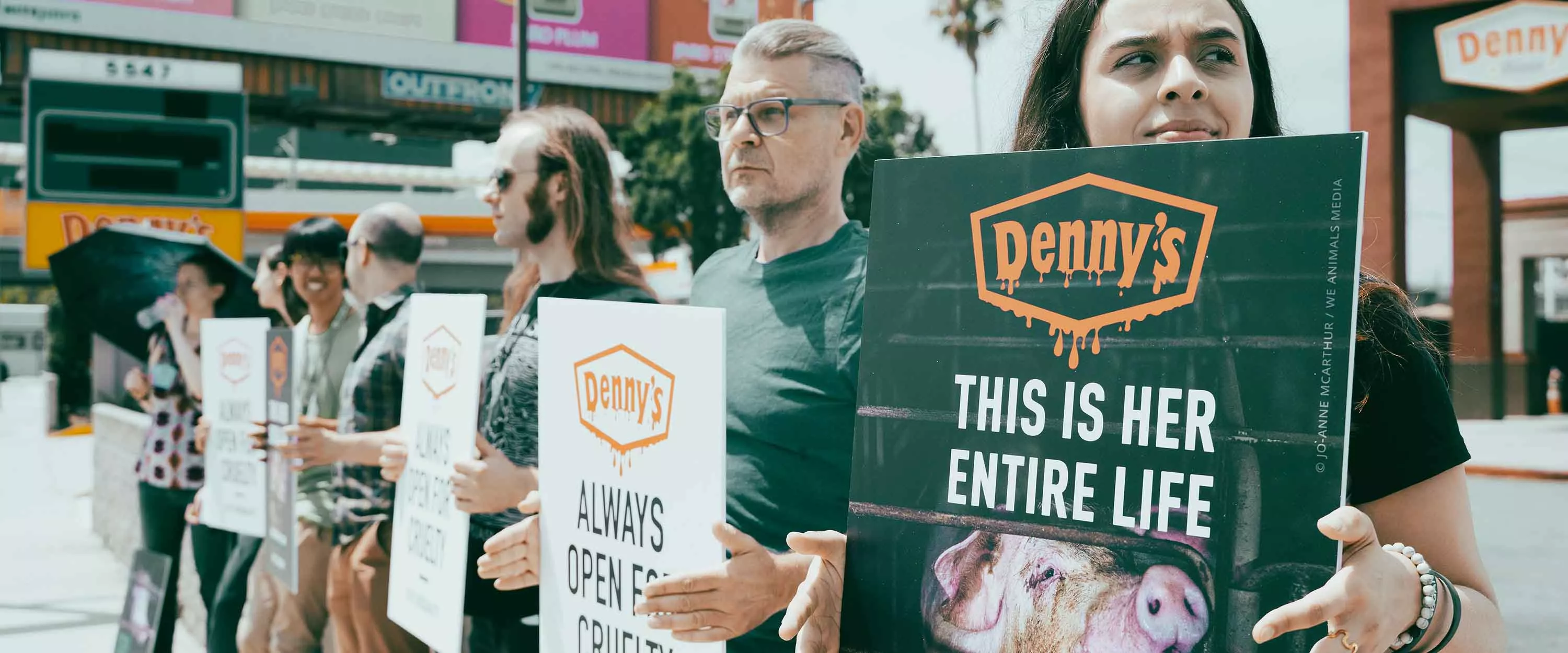
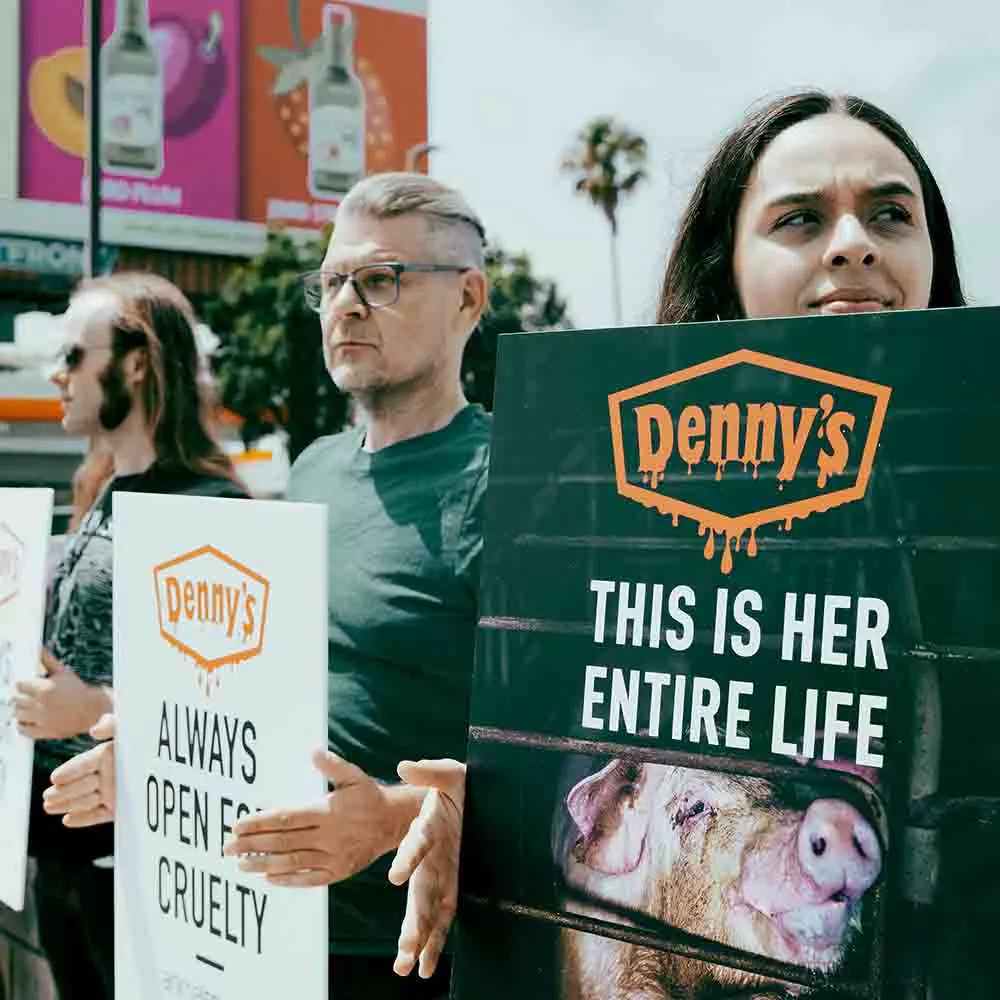
Campaigning to
end animal cruelty
GET INVOLVED IN OUR CAMPAIGNS
Animal Equality is leading effective campaigns to protect animals.
Will you join us?
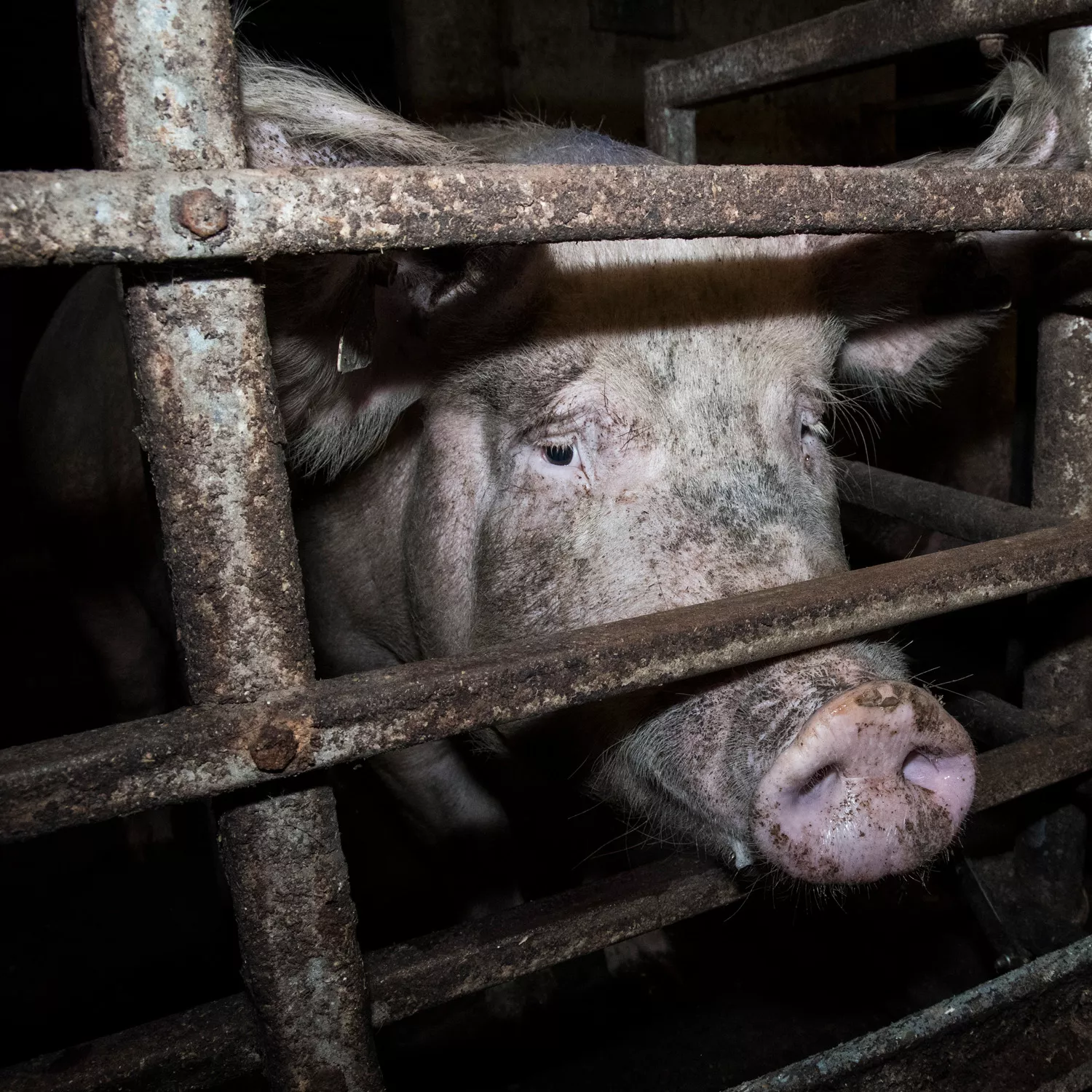
United States
End factory farming
In the United States, ninety-nine percent of all animals raised for food live on factory farms. Having inspected hundreds of factory farms and dozens of slaughterhouses worldwide, Animal Equality has repeatedly revealed that animal abuse and neglect are common within this industry.
Banning factory farming in the United States aligns with Americans’ values, beliefs, and interests and contributes to building a world where all animals are protected and respected.
United States
End horse slaughter
Every year, thousands of American horses are transported to Canada and Mexico to be slaughtered for their meat. These animals endure long journeys, often traveling for more than 24 hours in overcrowded trucks without access to food or water.
Investigations by Animal Equality in countries like Italy, Spain, and Mexico have shown that horses are sometimes slaughtered while still conscious, raising serious animal welfare concerns.
There is no permanent ban in the United States on the export or slaughter of horses for human consumption.
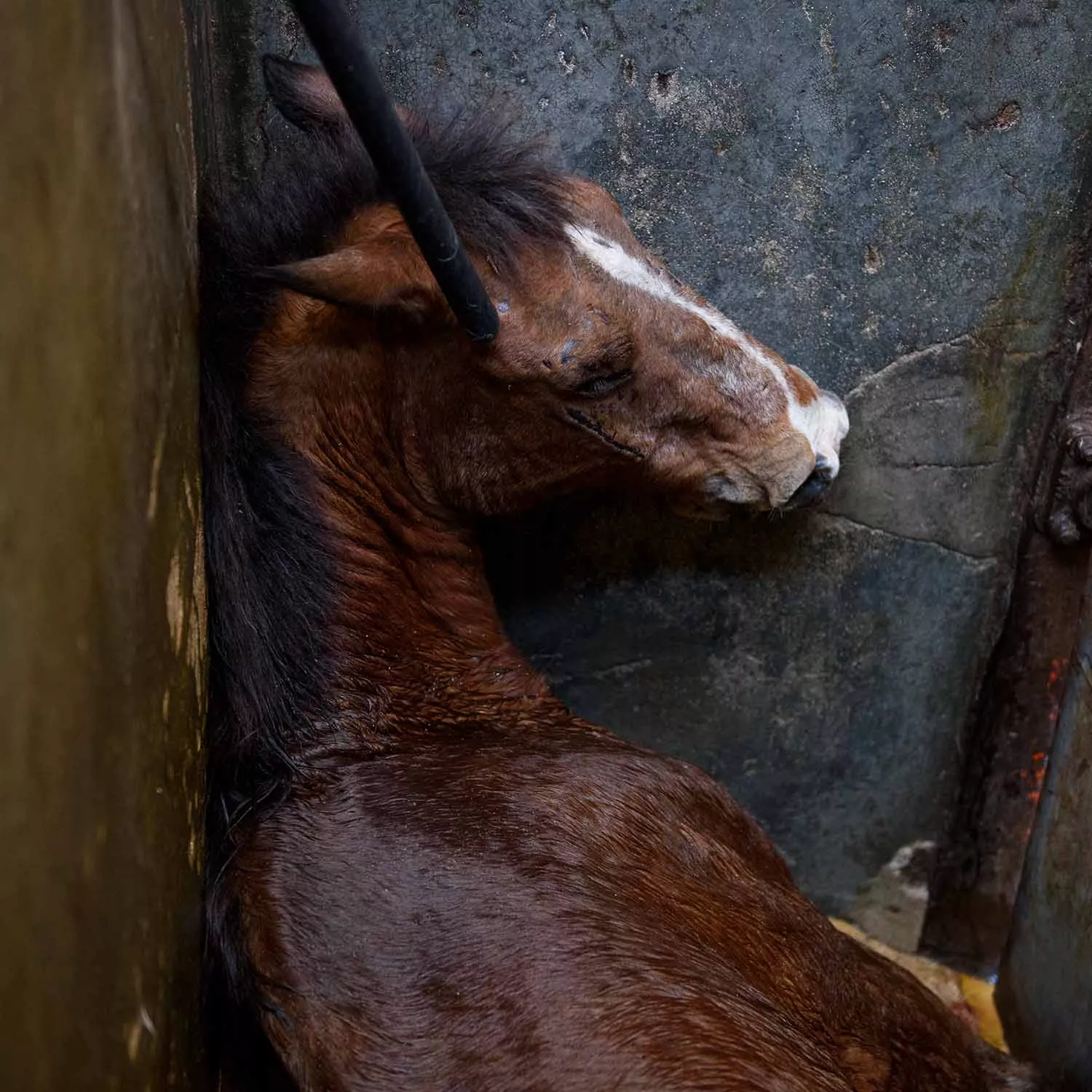
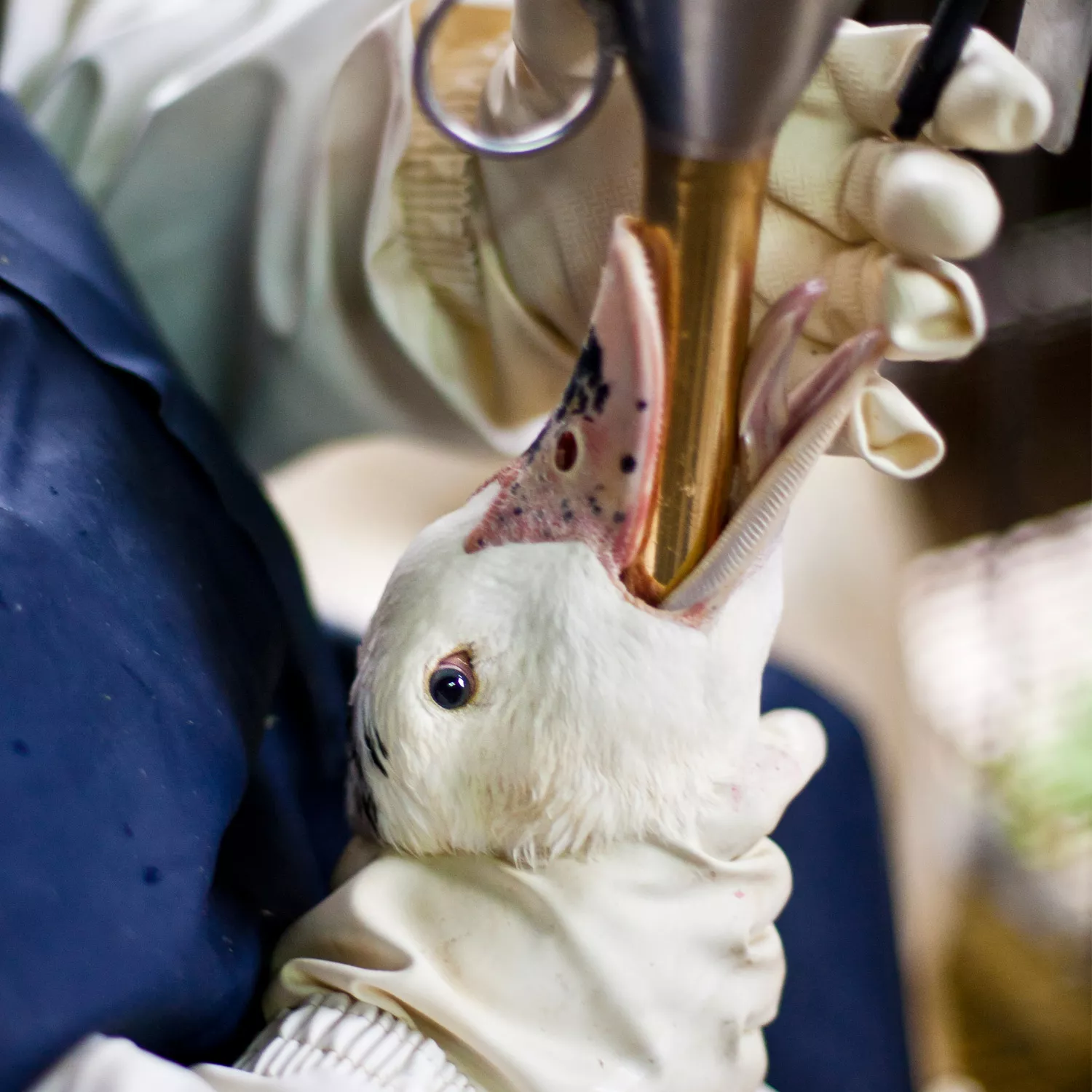
United States
BAN foie gras and force-feeding
Foie gras, meaning “fatty liver” in French, is made from the enlarged livers of ducks and geese who are force-fed to induce fatty liver disease. This practice, involving tubes inserted into the birds’ throats, has been widely criticized for its impact on animal welfare.
While banned in some regions, foie gras production remains legal in 49 U.S. states. Advocates are urging a nationwide ban to end this practice.
United States
Stop the killing of male chicks
In the egg industry, male chicks are commonly killed shortly after birth because they cannot lay eggs and are not the breed used for meat production. As a result, they are considered economically unviable.
The methods used to kill male chicks include gassing, suffocation, and electrocution. Another widely used method is maceration, where chicks are placed into a grinding machine.
Animal Equality is working in the U.S. and internationally to end this practice, known as chick culling, and to promote more humane and sustainable alternatives.
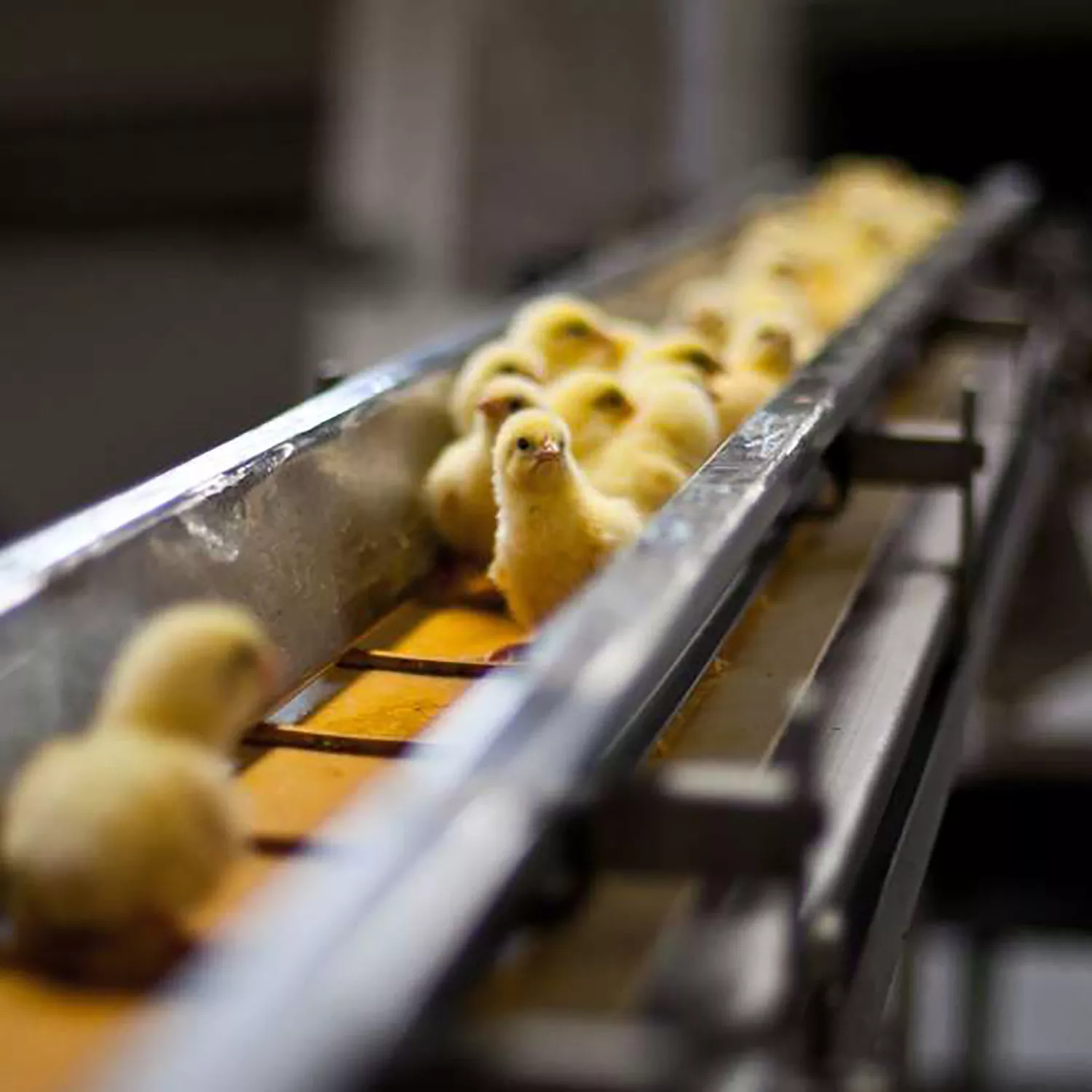
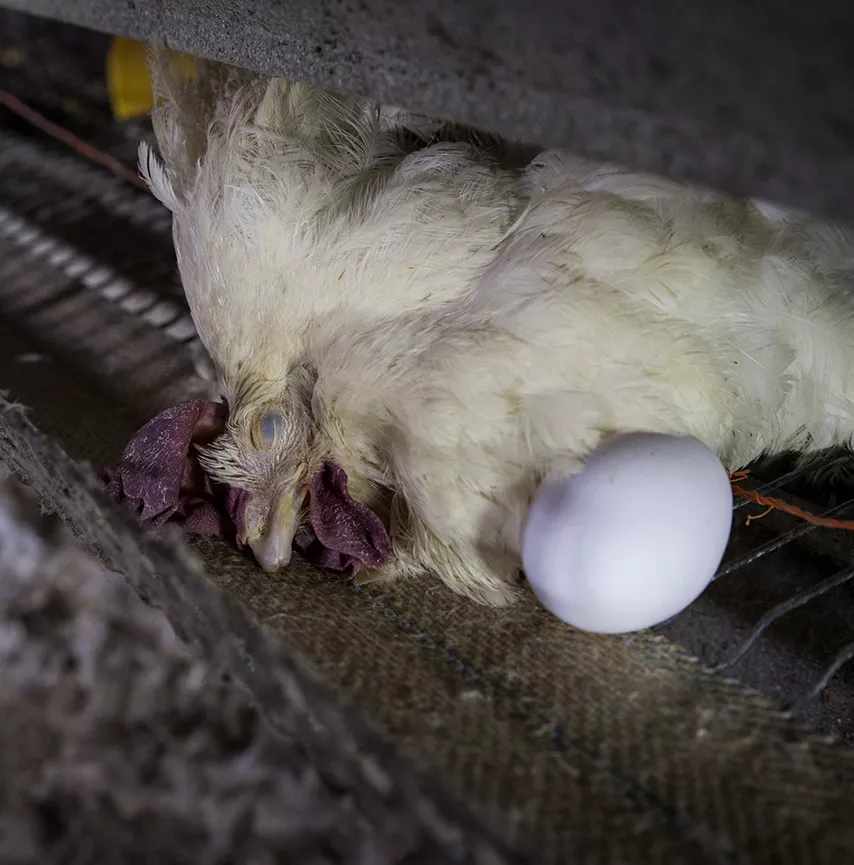
United States
PANDEMIC FARMS: UNCOVER THE BIRD FLU BREEDING GROUND
Animal-borne diseases are becoming more visible and widespread than ever. Do you know why?
With multiple human contagion cases confirmed, the spread of bird flu continues rapidly evolving, becoming an imminent threat to all species.
It’s time to take action.
United States
Defend cows from the dairy industry
The image of happy cows grazing in open fields often portrayed by the dairy industry is far from reality. Investigations by Animal Equality have revealed the challenges cows and buffalos face on dairy farms.
Cows are routinely subjected to forced impregnation, and their calves are taken away shortly after birth, so the mothers can be used for milk production. Once they can no longer produce milk, these animals are typically sent to slaughter for meat.
You can help protect cows by reducing or eliminating milk and other dairy products from your daily routine. Every small change makes a difference.
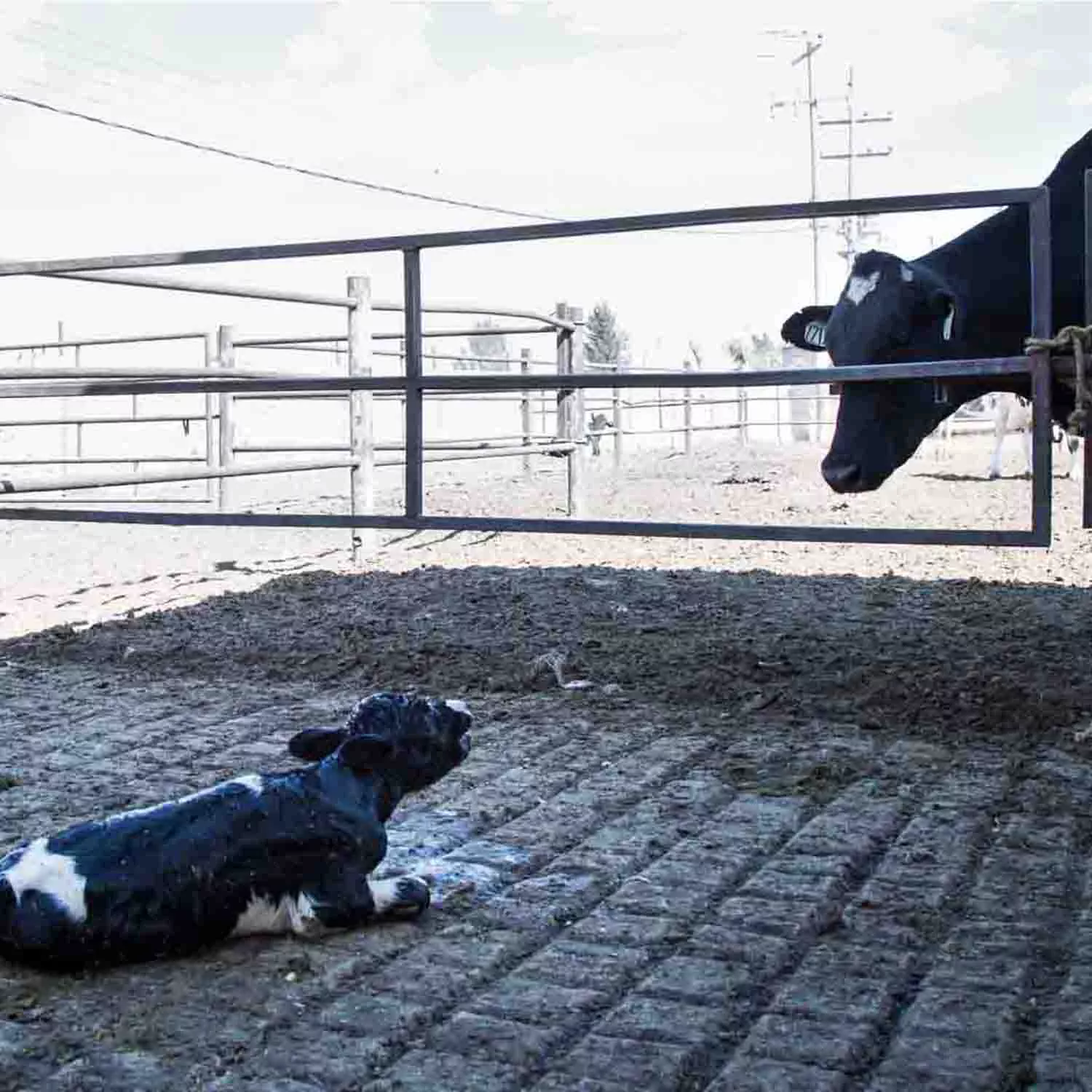
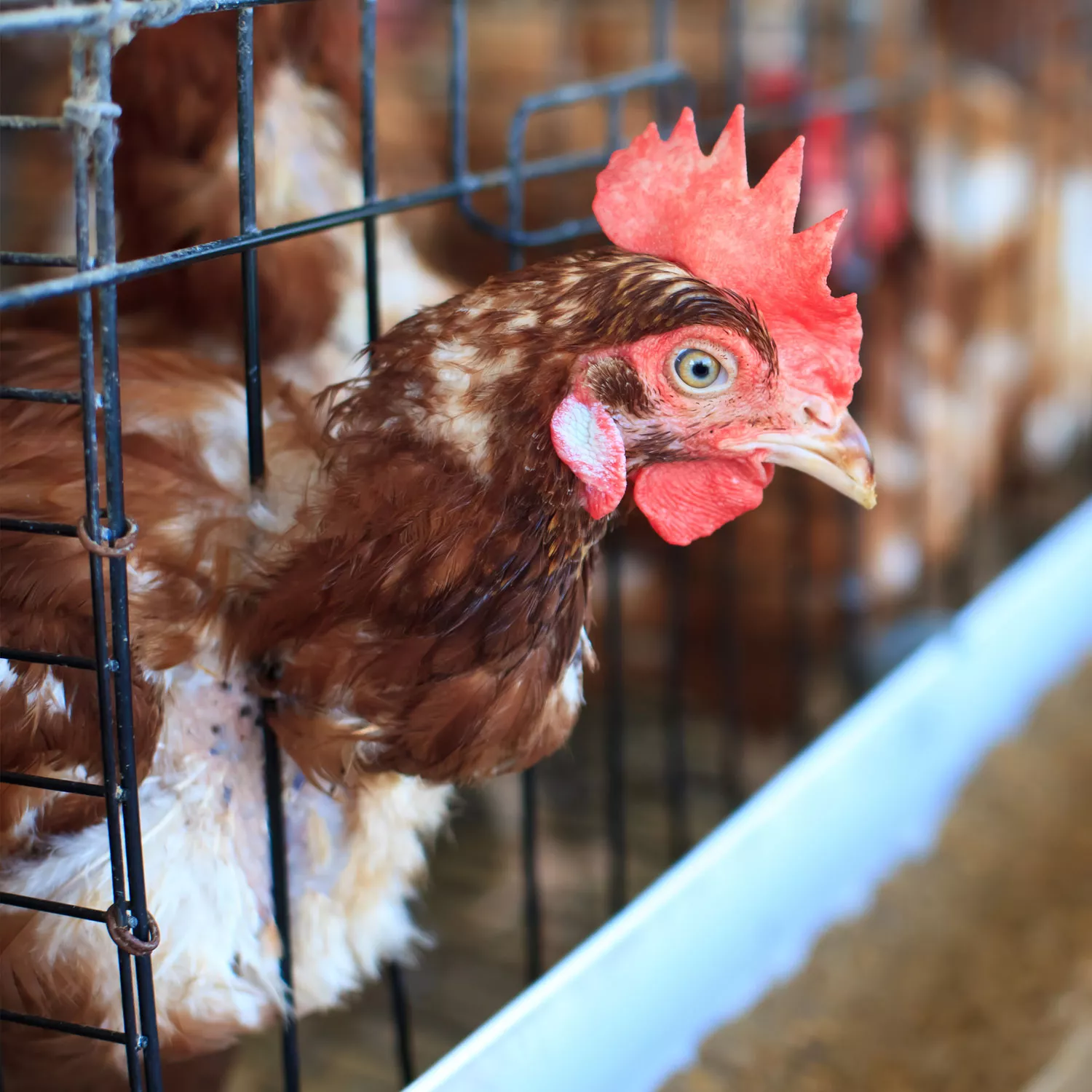
International
End Cages for Hens
One of Animal Equality’s strategic priorities is ending cages for hens worldwide. This cruel and outdated system causes extreme suffering to birds. Over the last two years, Animal Equality has educated millions of people about the horrific suffering of these animals, as well as successfully convinced over 75 companies to eliminate cages from their supply chain in five countries. In India, we have been working with the Law Commission, which recommended the banning of cages for hens.
International
End animal sacrifice at the Gadhimai Festival
Since 2014, we have been actively campaigning to stop the brutal animal sacrifice at the Gadhimai festival, and our petition in 2019 gathered over 100,000 international signatures urging the Nepalese government to ban the slaughter of animals.
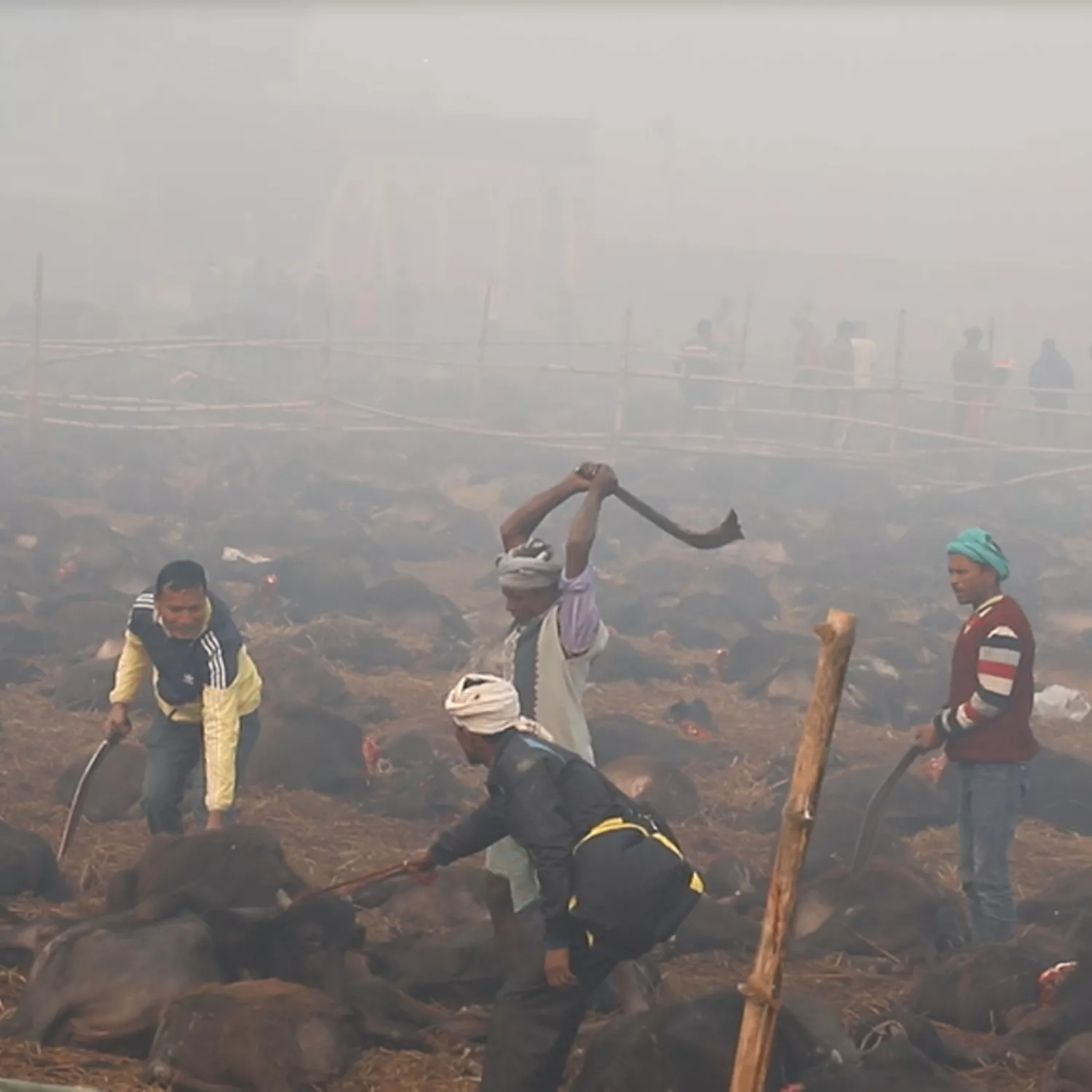
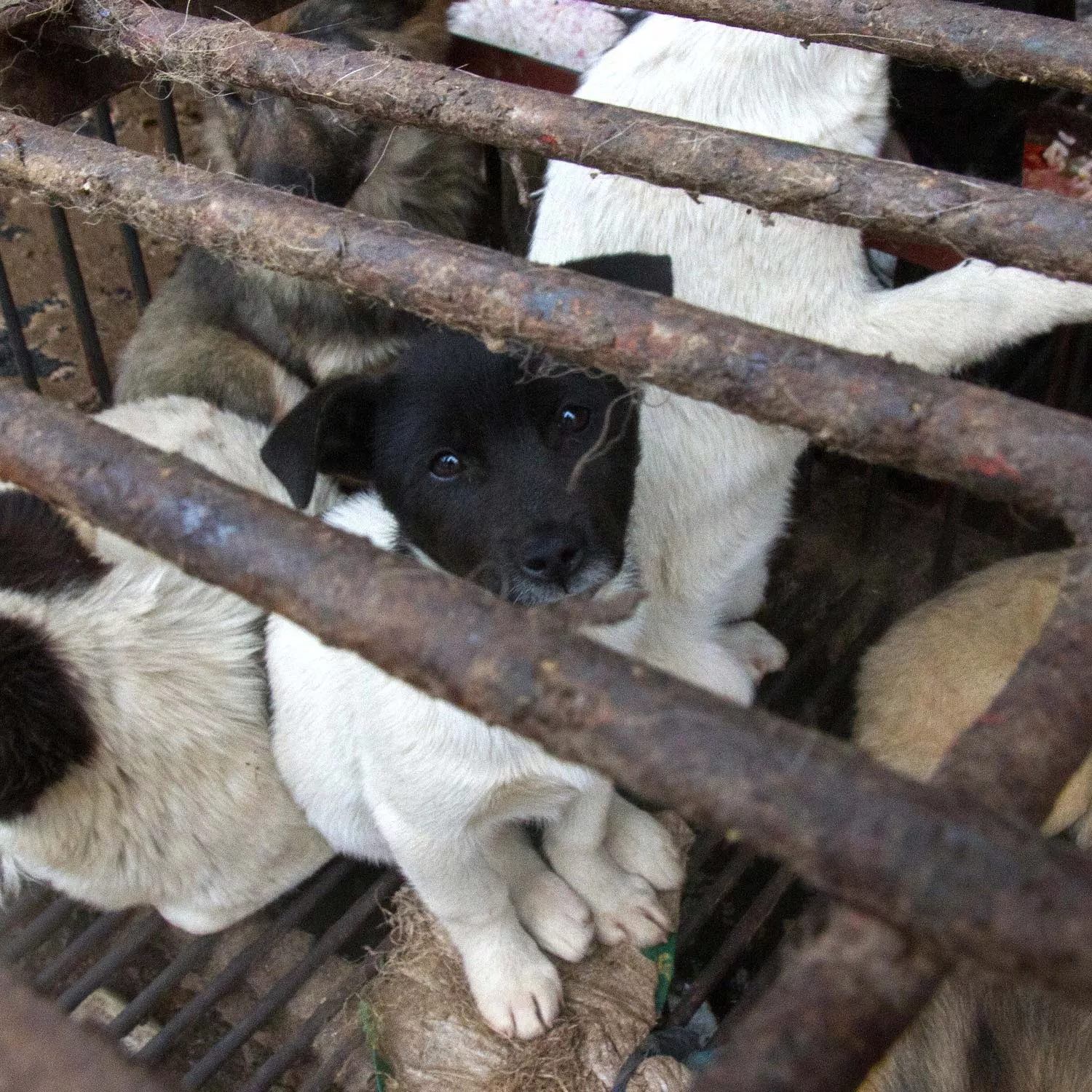
International
End the cat and dog MEAT trade
Animal Equality’s 2020 investigation revealed the continued sale and slaughter of dogs and cats in China’s wet markets, despite government claims suggesting otherwise.
Over 10 million dogs and 4 million cats are killed for consumption each year.
What can I do to help?
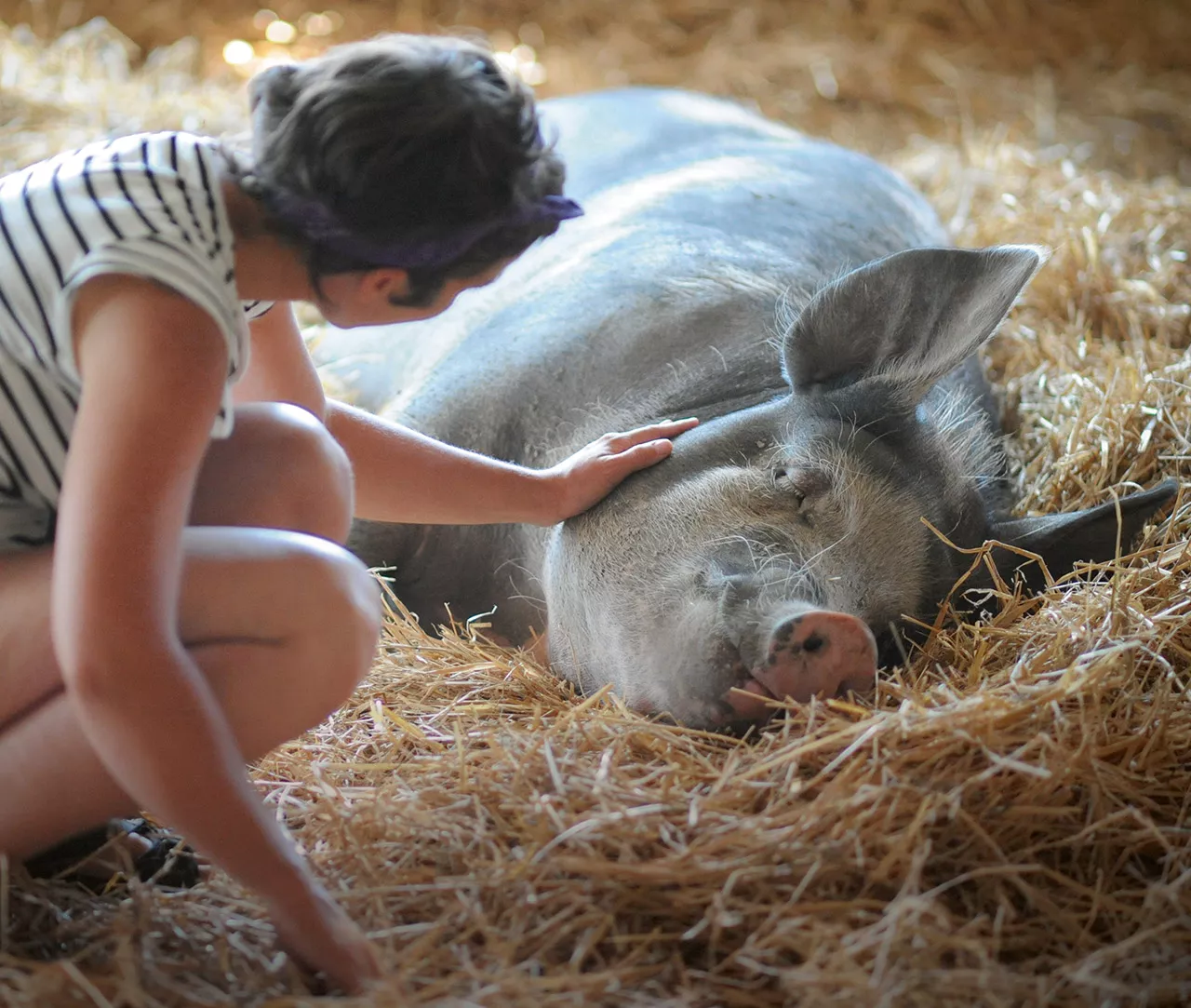
Become an Animal Protector
As an Animal Protector, you’ll be the first to know about powerful yet simple actions you can take to improve the lives of farmed animals.
Photo: Jo-Anne McArthur / We Animals

